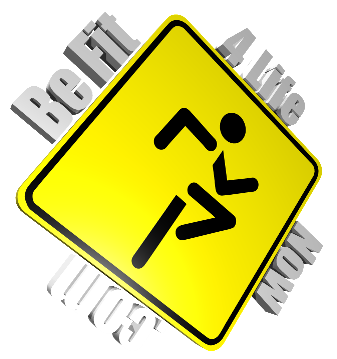If you participate in endurance events lasting more than one hour, competitions lasting several hours, or high-intensity workouts that exhaust your body, refueling your body post exercise is very important. Susan Kundrat, MS, RD owner of Nutrition on the Move in Champaign, Illinois, offers the following suggestions to help you replace solid and liquid foods.
1. Understand Why Your Body Needs Refueling. During exercise the body breaks down tissues and uses energy (primarily carbohydrates) contained or stored in the blood, liver, and muscle. If you exercise more than once a day, replenishing lost energy in the muscle is crucial to ensuring that your subsequent workouts are productive.
2. Learn Why Fluid Replacement Is Essential. The harder and longer you exercise, the more fluid you lose during workouts. If it is extremely hot or humid, keeping hydrated can be even more difficult because you sweat more and get overheated more quickly. Replenishing lost fluid after workouts —in addition to staying well hydrated during exercise—is essential for keeping your body working at its best.
3. Calculate How Much to Drink. The American College of Sports Medicine (ACSM) recommends drinking 600 to 1,200 milliliters of fluid (2-5 cups) per hour during exercise. After exercise, drink 2 to 3 cups (16-24 fluid ounces) of fluid per pound lost in sweat. Weigh yourself before and after your workout to get an idea of the amount of fluid lost through perspiration.
4. Figure Out What to Drink. ACSM recommends drinking water if your exercise session lasts less than 60 minutes. If it goes longer, use a four-to eight-percent carbohydrate sports drink. Sports drinks can be a good choice after endurance exercise because they can be more palatable than water, increasing the tendency to rehydrate, and they can help replace lost electrolytes.
5. Identify When to Refuel With Carbohydrates. If you exercise at a moderate intensity for 30 to 60 minutes three to five times per week, you can maintain adequate carbohydrate stores by eating a balanced diet and staying hydrated during and after exercise. If you train harder or longer at one time or exercise more than once a day, your muscles need to be refueled with carbohydrates immediately after exercising and again at the next meal or snack. This practice can ensure that carbohydrates stored in the muscle (i.e., glycogen) are consistently replenished.
6. Choose a Type of Carbohydrates. Carbs in liquid form (e.g., juices or sports drinks) can be easier to digest than carbohydrate-rich solid foods and are less likely to interfere with normal eating patterns. If you prefer solid food, however, you can eat something as simple as a sports bar (along with water).
7. Understand Why You Need Protein. Protein is an important building block for muscle. It also assists in the production of blood plasma and hemoglobin, which supply oxygen to working muscles. Several studies suggest that mixing protein and carbohydrates after activity can enhance the insulin response, which encourages resynthesis of muscle glycogen.
8. Know How Much Protein to Eat. Most experts recommend eating carbohydrate and protein in a ratio of 3:1 or 4:1 after exercise. An example would be two servings of vegetables and one serving of grains for the carbs, plus one serving of meat for the protein.
9. Realize When You Need Sodium. Several hours of exercise in even a cool climate can result in sodium losses. Because the typical Western diet contains 4.5 grams (g) of sodium per day, this is generally not a problem. However, when you exercise excessively in high heat, sodium losses can be as much as 10 g per day. Under such circumstances, you need to replenish stores by consuming foods that contain significant amounts of sodium. (While some potassium is also lost during sweat, potassium stores in the blood and muscle are usually well maintained during exercise.)
10. Learn What Foods Contain Sodium. Sodium is found in some sports drinks and in many foods, particularly processed foods like soups, canned sauces, and frozen dinners.
by: IDEA health and fitness Association


No comments:
Post a Comment